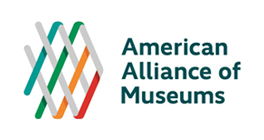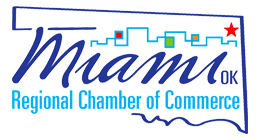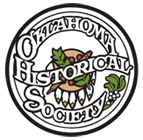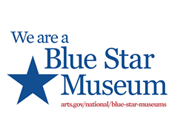Dobson Museum

Policy & Procedures
The Collections Committee will meet regularly, at least by-monthly to process objects. The Collections Committee will have representatives from the Board and the OCHS membership. The Committee may ask expert advisors to attend if necessary.
Legal Issues
The Committee will consider those lenders who want their objects returned, copyright issues, loan requests, or other legal issues. Recommendations will be presented to the Board.
Accepting Objects
The Committee will recommend which objects to accept for the collections, and forward their decision to the Board for their action.
Removal of Objects
The Committee will consider objects for de-accession, and forward their recommendations to the Board.
Purchases for the Collection
If an object come before the committee that might be purchased to fill a specific purpose in the collection, the committee would make the decision regarding allocation of monetary resources to the Board.
Definitions
Acquiring refers to the transfer of ownership to the OCHS from another owner. Acquired objects are not necessarily accessioned.
Accessioning refers to the process of formally adding materials to the permanent collection.
De-accessioning refers to the process of formally removing materials from the permanent collection.
Artifact denotes an object that is useful for educational purposes, but is not designated for long-term preservation, and thus is not included in the OCHS permanent collection
Donations of Objects
When a donation is offered, the OCHS will issue a temporary receipt to be signed by the donor. If the Collections Committee and the OCHS Board accept the object, a Deed of Gift will be sent to the donor. All tax matter dealing with donations will be the responsibility of the donor. A member of the Collections Committee will be responsible for the completion of all appropriate paperwork. The Collections Committee is responsible for recommending objects to the OCHS Board of Directors.
Criteria
The committee will consider the condition of any object before acceptance.
1. The OCHS must be able to reasonably care for the object
2. Addition to the collection will be transferred to the Board of action within a reasonable time.
3. No appraisals will be made by OCHS members, volunteer or staff.
4. The OCHS will comply with all state and federal laws concerning objects donated.
Borrowing and Lending Objects
Incoming Loans: The OCHS will accept loans for purposes of exhibition and study. All incoming loans must be for a specific period of time (generally one year or less) and are subject to standard conditions of incoming loans. The OCHS handles incoming loan materials in a manner consistent with its handling of similar items in its own collections. Any loan items left in the building after written notification of this loan’s expiration and attempts to return the items listed on the form, and after a period of thirty (30) days, shall become the property of OCHS. Any incoming loans must be initiated by OCHS.
Outgoing Loans: Until further notice, the OCHS will refrain from making any outgoing loans.
De-accessions
Criteria
1. The Collection Committee shall determine that the OCHS has clear ownership of the object.
2. The Collection Committee shall determine that the object’s condition is beyond the ability of the OCHS to care for.
3. The Collection Committee shall determine that the object is detrimental to the stability of the collection or to the health of the public.
4. The object is duplication in the collection.
5. The object no longer supports the mission of OCHS.
Procedures
1. The Collection Committee is responsible for the recommendation of de-accession to the Board for their decision.
2. The Board shall approve the recommendation for de-accession by a majority vote.
3. Disposal shall be the responsibility of the Collections Committee.
4. No de-accessioned object may be acquired by any OCHS employee, Board member, volunteer or their representative except by public sale.
Disposal
Disposal of de-accessioned items may occur in several ways. The method should be selected by the Collections Committee on the basis of the best benefit to OCHS. The following list of allowable disposition methods is in preferential order.
Trade/ Exchange/ Gift: In order to avoid any appearance of unethical actions, OCHS may trade, exchange, or give de-accessioned material only to other educational institutions.
Maintained in OCHS non-accessioned collections: To be used in interpretive or other programs and uses that support the mission or operations of the OCHS.
Sale: public auction may be done anonymously or openly, on the decision of the Collections Committee and the Board.
Sale: other forms of auction such as sealed or invited bids.
Sale: private party, at a price determined by at least one independent appraisal. There should be compelling evidence that this method of disposal provides the greatest benefit to OCHS, and will not be seen as primarily benefiting the private party.
Discard: objects of no value to OCHS, and for which another home is unlikely to be found, may be jettisoned or destroyed.
Other
Access to Collections: Upon request, OCHS provides access to collections and relevant records, to approved researchers. Access is subject to prior arrangement, and requires the presence and assistance of a member of the Collections staff. Research items may be screened in order to protect OCHS, the donor, or source of the artifact or information about it. As a matter of policy, OCHS will not discuss valuation or purchase price, or other financial matters related to items in its collections.
The collection of the Ottawa County Historical Society is housed in the Museum of the Dobson Memorial Complex. The entire collection is protected by the copyright laws of the United States and may be used only for private study, scholarship or research. No usage (photographic, video, drawing, copying, etc.) of any item may be made without the prior written consent of the Ottawa County Historical Society Board.
Statement of Ethics: All Board member, employees and volunteers of OCH (“Interested Persons”) must be careful to avoid both the appearance and the reality of using their positions or the information and access gained from their positions improperly for their personal benefit or the benefit of another organization.
National and State Laws: the OCHS will strive to be in compliance with all applicable National or State Laws.
Collections Policy: This policy is authorized and approved by the Board of Directors of the Ottawa County Historical Society. A copy will be made available to the public on request.
Research Policy
All researchers need to have an appointment when requesting materials from the library/research room to give staff appropriate amount of time to pull resources being requested by researcher. Allow at least 7-10 days to pull materials for an appointment.
All research requests will be fulfilled in a timely manner; however allow at least 4-8 weeks as the museum has a small staff and several requests and projects going on simultaneously.
All research materials will be pulled and reshelved by museum staff only.
Ottawa County Historical Society reserves the right to access and handling of certain archival documents, photographs, and materials due to their condition and preservation storage.
| SERVICES | OCHS MEMBERS RATE | NON-MEMBERS RATE |
|---|---|---|
| Access to library and reference collection | FREE |
FREE |
| B/W Photocopy (8 ½”x11”) | $.25 (per page) | $.50 (per page) |
| B/W Photocopy (8 ½”x14”) | $.50 (per page) | $1.00 (per page) |
| B/W Photocopy (11”x17”) | $1.00 (per page) | $1.50 (per page) |
| Color Photocopy (8 ½”x11”) | $.50 (per page) | $1.00 (per page) |
| Color Photocopy (8 ½”14”) | $1.00 (per page) | $1.50 (per page) |
| Color Photocopy (11”x17”) | $1.50 (per page) | $2.00 (per page) |
| Hourly rate for research services (research conducted by staff for offsite patron) | $10/hour | $15/hour |
Newletter SignUp
Subscribe to our monthly newletter








